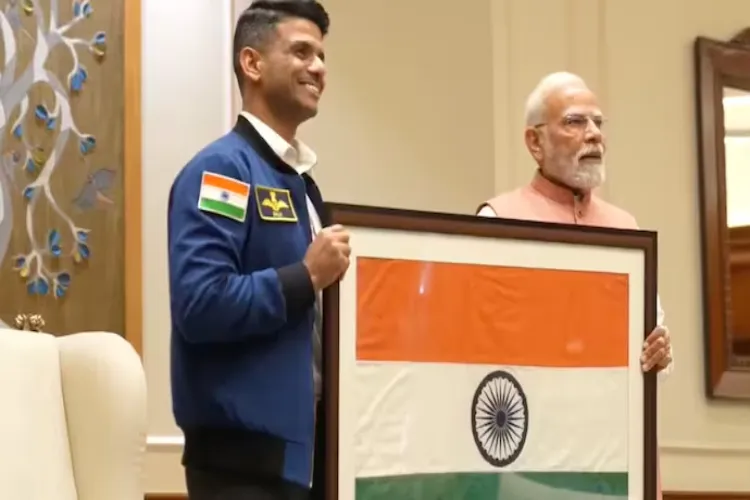
New Delhi
Group Captain Shubhanshu Shukla, Mission pilot aboard the recent Axiom-4 space mission, shared detailed insights about the experience and its significance for India's ambitions in human spaceflight, emphasising the invaluable knowledge gained from being in space itself.
Speaking in a press conference, he underscored the pride and profound perspective gained by viewing Earth from orbit.
He said, "Bharat aaj bhi Antariksh se saare jahaan se achha dikhta hai."
He explained that the true benefit of executing a human space mission goes far beyond rigorous training referencing India's upcoming space endeavour Gaganyaan.
"The benefit of executing a human space mission is more than the training. The supplementary knowledge we get just by being there is invaluable. All the information I have collected in the past year will be extremely useful to us for our own missions, Gaganyaan and Bharatiya Antariksh Station. Very soon we shall send someone from our capsule, from our rocket and our soil."
He pointed out the unique challenges of space on the human body and said, "The experience is very different from what you learn on the ground. The body goes through a lot of changes. The body forgets how to live in gravity after spending 20 days in space."
On the technical side, he described the mission's launch aboard SpaceX's Falcon 9 rocket and highlighted his key role as mission pilot on the Crew Dragon spacecraft.
Shukla said, "I want to thank the Indian Government, ISRO and my colleagues. We were flying on top of the Falcon 9 Vehicle. Crew Dragon is one of the three vehicles that can take humans to space. My profile in this mission was the mission pilot. There are four seats in the Crew Dragon. I was the mission pilot and I had to work with the commander and interact with the systems of the Crew Dragon. We had to perform the experiments that were conceived, developed and realised by the Indian researchers. And also to perform STEM demonstrations, capture photos and videographs."
He added, "This mission has been extremely successful. We have been able to achieve all of our technical objectives. Execution of such a mission gives a lot of knowledge that cannot be measured or documented."
Meanwhile, Indian Space Research Organisation (ISRO) Chief V Narayanan provided an update on the progress of the Gaganyaan mission, India's ambitious human spaceflight project.
Describing the mission as "very technologically intensive" and "complex," Narayanan said that "80 per cent" of tests are completed.
"It is a very technologically intensive, complex mission. A lot of work is done, environment control and safety system, arbital module development, human-centric product development. I am happy to say that 80 per cent of tests are completed, and 20 per cent are targeted before March 2026," V Narayanan said.
ALSO READ: V.P. Suhara has taken the Muslim women's battle for rights to the Court
Additionally, Narayanan announced that the first uncrewed mission, known as G-1, is expected to be launched later this year, possibly in December.
